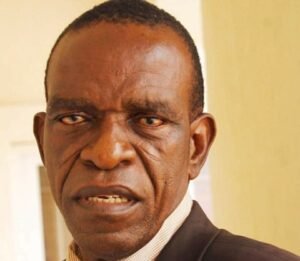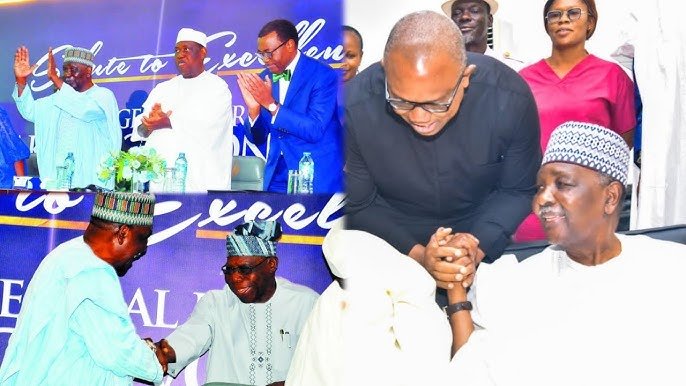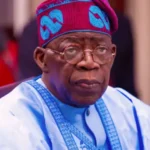“I thought that that was what our forefathers meant whenever they reminded us of ‘Igbo sense’. Where is our Igbo sense? It’s not only in making money; we also need it in politics” – Ike Abonyi

The hullabaloo generated by the goodwill message sent to the former military Head of state, General Yakubu Gowon, on his 90th birthday anniversary by the Labour Party leader, Peter Obi, has opened yet another chapter in the Igbo’s political tactics and their quest for the exalted office in the land.
Not a few political observers are still in shock and wondering why some Igbos reacted so angrily to Obi’s message to the extent that political opponents are cashing in on it to try and drag down the rising profile of the former Anambra State Governor.
Even after Obi’s well-tailored explanation as to why he sent the message to the former Head of State and elder Statesman, and why people should see it from his perspective of reconciliation and stooping to conquer, those who do not want Igbos to conquer and take their rightful position in Nigeria are fanning the discord to portray Ndigbo as intolerant and unforgiving race burning with the anger of a civil war that ended 54 years ago.
But I am here to tell the rest of Nigerians that the majority of Ndigbo have resolved to move on, but those fueling the Gowon thing are those wondering why it should be Obi who will lead Ndigbo to Nigeria and not them.
The truth that we must come to terms with is that rational Igbo and other Nigerians do not want tribal bigots as leaders in today’s Nigeria.
Many Igbos even bigger than Obi have tried in the past to take the Igbo back to national politics but none have been as successful. Since the end of the civil war and return to democracy in 1999, no Igbo has gained national acceptability as Peter Obi. In all the six presidential elections conducted since 1999, at an Igbo has always been on the ballot but only in 2019 and 2023 did Ndigbo pay the Igbo candidate a heed. That was a major shift caused largely because of the content of Obi’s messages and their belief that he is the man with the national appeal to return Ndigbo to the center.
But returning Ndigbo to the center comes with a lot of sacrifices, which Obi knows and is determined to make in the spirit of stooping to conquer.
“Stooping to conquer” is a strategic approach that involves temporarily yielding or compromising to ultimately achieve a greater goal or victory. This concept is relevant in various contexts, especially in conflict resolution. It entails relinquishing something in a disagreement which can help to resolve issues and strengthen relationships. In the circumstances of building relationships, listening and accommodating opposing views can lead to better understanding and resolution. As it’s in business so it is in politics – stooping to conquer helps negotiation and ensures flexibility, being open to compromise, facilitating successful deals and partnerships.
It’s only when you dispose yourself to a temporary concession that you can gain long-term goals. In politics and international relations, they call it diplomatic compromise, and it prevents conflicts and promotes cooperation. In the military, it’s known as a tactical retreat, when troops withdraw to regroup and recharge ultimately to gain the desired victory. In the same military, there may be a desired strategic alliance towards shared objectives.
Therefore by congratulating General Gowon, Peter Obi is trying to deploy these tactics and show the spirit of love rather than hate, the spirit of forgiveness as copiously explained in his explanatory response to Nigerians on social media why he congratulated Gowon
“In all my dealings with human beings, I (have) tried to be guided by my faith as a Christian in a strong message preached by Jesus Christ himself and underscored in reflections in St Paul’s letter to the Colossians 3:13 ‘Bear with each other and forgive one another if any of you has a grievance against someone. Forgive as the Lord forgave you.’ And to the Ephesians 4: 31-32 ‘Get rid of all bitterness, rage and anger, brawling and slander, along with every form of malice,’” the former two-term Governor of Anambra State explained.
Obi has been consistent in this lifestyle of forgiving his offenders. As Governor of Anambra state, he forgave the Speaker of the State House of Assembly, Hon. Mike Balonwu, who impeached him by 5 am; he forgave him immediately after the court reinstated him.
Even if Peter Obi erred by congratulating General Gowon at 90, is it why he should be thrown under the bus? Has he not demonstrated his Igbonness in the past in several ways to warrant an extenuation for him? The national burial given to Dim Chukwuemeka Odumegwu Ojukwu by President Goodluck Jonathan era was made possible by Obis charismatic leadership as Governor of Anambra State and Chairman of the South East Governors forum.
Nobody has done more to promote Ojukwu than Obi. He rebuilt and renamed Anambra State University after Ojukwu.
What those attacking Obi on this Gowon issue are doing is tantamount to persecuting a good player, a leading top scorer in the team because he missed a vital penalty. But did Obi injure Igbo sensitivity by the message, given the Igbo’s desire to walk their way back to the center? If Igbos desire the Nigerian president, do they expect to get it by bemoaning the war that ended 54 years ago?
I stand to be challenged if I say that if Ojukwu was alive, he would have attended General Gowon’s birthday ceremony. In 2010, Gowon visited Ojukwu, and they told the World that they had reconciled, so what is all this noise about?
When Ojukwu described the late Obafemi Awolowo at his death as the best President Nigeria never had, he knew that it was Awolowo who caused the limiting of all Biafra currency of any amount to twenty pounds to suffer the Igbos but he knew that what was important to him was a handshake across the Niger to return Igbos to the center.
The global space is awash with leaders whose greatness was enhanced more by the large heart they demonstrated toward their offenders. Examples include Nelson Mandela’s reconciliation efforts in post-apartheid South Africa, Abraham Lincoln’s compromise on slavery during the American Civil War, and the Marshall Plan’s economic cooperation after World War II. Was it not in the spirit of letting go for peace that Chinese Sun Tzu, in his book, The Art of War, says, “Sometimes you have to lose a battle to win a war.”
Stoop to conquer is rooted in ancient philosophy based on adaptability and strategic yielding. Chinese strategist Zhuge Liang noted that “to yield is to conquer.” Greek philosopher Aristotle (384-322 BC)admonishes that “it is sometimes necessary to yield, for the sake of ultimate victory.” (Rhetoric, Book II)
So, what are we trying to say here? The fuss over Obi congratulating a 90-year-old man God kept alive for a purpose only he knows should not be our worry. If our eyes are fixed on the ball, distractions should be avoided. A Chinese proverb says “Victory often goes to the army that knows when to retreat.”
Dear Ndigbo, in this political journey to reclaim our position in Nigeria, let us involve retreats and temporary concessions. I thought that that was what our forefathers meant whenever they reminded us of Igbo sense. Where is our Igbo sense? It’s not only in making money; we also need it in politics.
God help us.


























